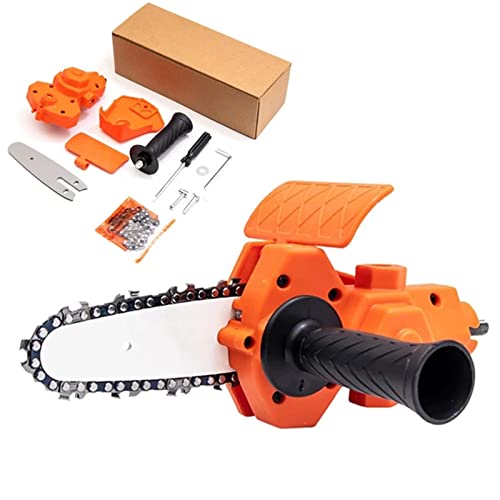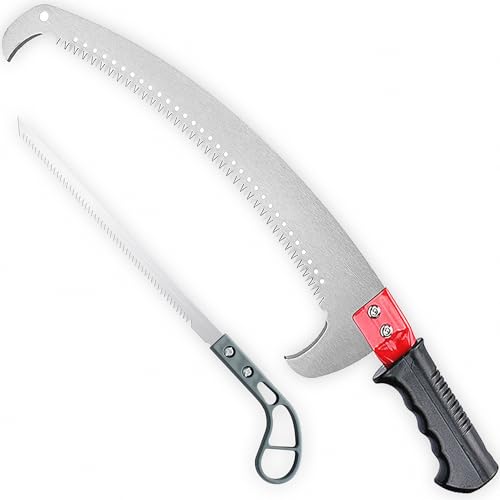Anybody know the reason why wood stoves pop, ping and tick when they're heating up? I've been burning for a couple of years now, but I really got to wondering about it the other morning while eating my Cap'n Crunch.
You are using an out of date browser. It may not display this or other websites correctly.
You should upgrade or use an alternative browser.
You should upgrade or use an alternative browser.
Why does a wood stove ping and tick when heating up
- Thread starter pweber
- Start date

Help Support Arborist Forum:
This site may earn a commission from merchant affiliate
links, including eBay, Amazon, and others.
William Balaska
Addicted to ArboristSite
Expansion.
Correct. Mine will do this sometimes for half an hour until the flue gases reach about 1300 F. It sometimes creaks also as it cools off.Expansion.
Correct. Mine will do this sometimes for half an hour until the flue gases reach about 1300 F. It sometimes creaks also as it cools off.
Holy Balls, that is HOT!!! have gotten 950+ but ever anywhere near 1300. It was glowing red at 950-1000 too......
Mine will for about 5 minutes in the AM when I stoke it up, usually chimney temps are around 600-700, when I close the door and go to work.
JeffGu
Antagonist/Heckler
Yeah, but Wood Doctor is in Omaha... he has to burn the last bits of burglar out of the chimney...

$19.99 ($3.33 / Count)
Firewood Log Splitter 45mm+32mm + 4 Handles (Square + Round + Hex Shank + Small Hex) Wood Log Splitter Easy Splitter Detachable Drill Bit Heavy Duty Electric Drills Screw Cone Driver Removable
JianShiMoQinDianZiShangWuYouXianGongSi

$23.98
$28.99
ESTWING Sure Split Wedge - 5-Pound Wood Splitting Tool with Forged Steel Construction & 1-7/8" Cutting Edge - E-5
Amazon.com

$17.99
$19.99
Extendable Pole Saw Branch Trimmer Pruner Head for Tree Trimming Pruning
FENGLICNSAOMV

$37.99
$39.99
Wood Kindling Splitter - The Firewood Kindling Tool for Wood Stove Fireplace and Fire Pit
UniExtra

$215.05
$233.19
Weaver Leather WLC 315 Saddle with 1" Heavy Duty Coated Webbing Leg Straps, Medium, Brown/Red
equipatron

$37.99 ($0.38 / Foot)
$40.99 ($0.41 / Foot)
Arborist Rope Climbing Rope Swing for Tree(1/2in x 100ft) Logging Rope 48 Strands for Pull, Swing, Knot (Orange)
SDFJKLDI

$79.99
ZELARMAN Chainsaw Chaps 8-layer Protective Apron Wrap Adjustable Chainsaw Pants/Chap for Loggers Forest Workers Class A
QUALITY GARDEN & HAND TOOLS

$337.83
$369.99
WEN Electric Log Splitter, 6.5-Ton Capacity with Portable Stand (56208)
Amazon.com

$225.16
OREGON 295397 Type C (All Round Yukon Chainsaw Protective Trouser, Black, Small
Express Shipping ⭐⭐⭐⭐⭐

$26.99 ($0.22 / Foot)
$29.99 ($0.25 / Foot)
VEVOR Double Braided Polyester Rope, 1/2 in x 120 ft, 48 Strands, 8000 LBS Breaking Strength Outdoor Rope, Arborist Rigging Rope for Rock Hiking Camping Swing Rappelling Rescue, Orange/Black
Amazon.com

$194.26
Oregon Yukon Chainsaw Safety Protective Bib & Braces Trousers - Type A Protection, Dark Grey, Large
Express Shipping ⭐⭐⭐⭐⭐
My bones and joints do the same, and I'm only 45. I can't imagine what SS and tomtrees sound like in the morning - a crowd of people applauding I bet.
ChoppyChoppy
Tree Freak
Holy Balls, that is HOT!!! have gotten 950+ but ever anywhere near 1300. It was glowing red at 950-1000 too......
Mine will for about 5 minutes in the AM when I stoke it up, usually chimney temps are around 600-700, when I close the door and go to work.
Yeah... no thanks! The temp gauge I have says over around 800 is an overfire.
I try to keep rapid temperature changes to a minimum in my Jotul. It's better for them.
Remember that I'm burning a modified cat combustor. That flue gas temp is measured right above the fire, just below the stove top, and before it goes up the chimney. Also, it only gets that hot when the temp outside is single digits or less and a NW wind is blowing, dropping the wind chill well below zero. My stove's fires love that. Most of the time the flue gas temp sits on 1100 F or less.
Ferguson system
Iggesund Forest dealer
I try to keep rapid temperature changes to a minimum in my Jotul. It's better for them.
Jøtul model?
mn woodcutter
ArboristSite Guru
The ticking on my stove lulls me right to sleep in the recliner!
Expansion and contraction. I stoke my stove and it happens. A fresh load on a hot bead of coals and that heat isnt making it to the top half of the stove. My stove is sheet metal so I get a lot of movement out of it and it talks to me each loading.
Oldman47
ArboristSite Guru
Marshy is right. The noises come from expansion and contraction of various parts. If you have a part of your stove heating up or cooling faster than another part, the actual expansion will be different and where they meet will mean things sliding/rubbing. As metal moves across other metal it makes noise by things dragging. If every bit of your stove was completely isolated from every other bit, expansion and contraction would be silent because no part would ever rub against any other part.
Jøtul model?
F600CB.
Marshy is right. The noises come from expansion and contraction of various parts. If you have a part of your stove heating up or cooling faster than another part, the actual expansion will be different and where they meet will mean things sliding/rubbing. As metal moves across other metal it makes noise by things dragging. If every bit of your stove was completely isolated from every other bit, expansion and contraction would be silent because no part would ever rub against any other part.
Ok, this basically answers my question. I was fairly certain that the noise was coming from metal against metal rather than something weird like little molecules in the metal releasing gas (like when you crack your knuckles). I know it was kinduv a silly question, but my morning coffee hadn't really kicked in yet while I was listening to the stove warm up. Thanks all for the responses!
You young guys shouldn't have pops and pings yet....Not until you get old like me....lol.My bones and joints do the same, and I'm only 45. I can't imagine what SS and tomtrees sound like in the morning - a crowd of people applauding I bet.
StihlKicking
ArboristSite Operative
Steel expands
Sent from my iPhone using Tapatalk
Sent from my iPhone using Tapatalk
USMC615
Wood's Tougher Than Woodpecker Lips...
Just thought I'd join the party with my two pennies worth...contraction/expansion. 
HuskStihl
Chairin'em for the sound
It's shameful to see a moderator joining in with the others to punk you. The sounds you are hearing are the souls of ancient, native people being freed from their woody prison. Expansion my ass. Ask yourself, have you ever seen a stove get bigger or smaller?Expansion and contraction. I stoke my stove and it happens. A fresh load on a hot bead of coals and that heat isnt making it to the top half of the stove. My stove is sheet metal so I get a lot of movement out of it and it talks to me each loading.
Similar threads
- Replies
- 1
- Views
- 192
- Replies
- 5
- Views
- 2K
- Replies
- 12
- Views
- 2K
- Replies
- 37
- Views
- 11K












































